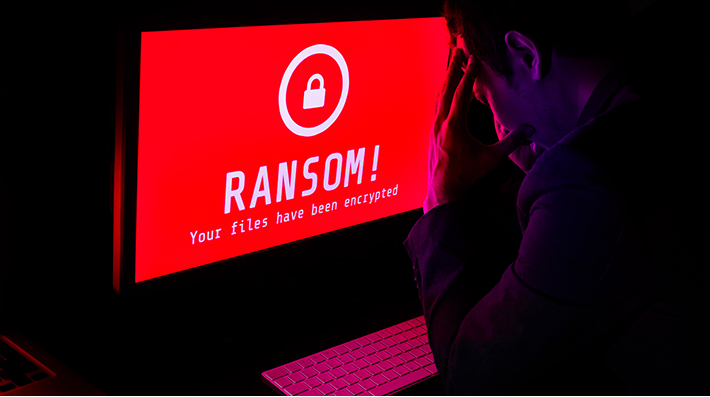FBI Warns Telecom Firms to Bolster Security Amid Chinese Hacking Campaign: The Need for Proactive Cyber Defense
Updated on December 5, 2024, by Xcitium

The FBI has issued a stark warning to telecom firms, urging them to enhance their cybersecurity measures following a sophisticated and wide-ranging hacking campaign attributed to Chinese state-sponsored actors. This campaign, targeting critical telecom infrastructure, underscores the growing threat of nation-state cyberattacks and highlights the urgent need for proactive and comprehensive cybersecurity measures.
The Threat: A Sophisticated Cyber Campaign
Chinese state-sponsored hackers have been implicated in a campaign designed to exploit vulnerabilities in telecom infrastructure, aiming to gather intelligence and disrupt operations. These attacks target routers, switches, and other critical network equipment that serve as the backbone of global communications.
Such campaigns are not new, but their scale and sophistication have escalated, making them a significant concern for governments and private sector organizations alike. Telecom firms, which play a pivotal role in national security and economic stability, are particularly vulnerable given their critical role in global communication networks.
The Challenges Facing Telecom Firms
Telecom companies face unique cybersecurity challenges due to the complexity and scale of their networks. Key challenges include:
- A Broad Attack Surface: With extensive networks and endpoints, telecom firms offer a vast attack surface for cybercriminals and nation-state actors.
- Legacy Systems: Many telecom companies rely on legacy systems that lack modern security features, making them prime targets for exploitation.
- Critical Role in National Infrastructure: As providers of essential communication services, telecom firms are integral to national security, making them high-value targets for nation-state actors.
- Supply Chain Vulnerabilities: Third-party vendors and equipment suppliers often introduce vulnerabilities that can be exploited by attackers.
Steps to Strengthen Telecom Cybersecurity
In response to the FBI’s warning, telecom firms must adopt a proactive approach to cybersecurity that includes the following measures:
- Implement Zero Trust Architecture
A Zero Trust model ensures that every user, device, and application accessing the network is authenticated and authorized. This approach minimizes the risk of unauthorized access and lateral movement within the network.
- Leverage Real-Time Threat Containment
Containment technologies isolate and neutralize threats before they can execute or spread. This is particularly critical for telecom firms dealing with high-value assets and sensitive data.
- Conduct Regular Security Assessments
Frequent audits and vulnerability assessments help identify and address weaknesses in the network before they can be exploited.
- Enhance Incident Response Plans
A robust incident response plan ensures that firms can quickly detect, contain, and recover from cyber incidents, minimizing downtime and impact.
- Collaborate with Government and Industry Partners
Sharing threat intelligence and collaborating on best practices can strengthen the overall cybersecurity posture of the telecom sector.
How Xcitium Can Help Telecom Firms Stay Secure
Xcitium provides advanced cybersecurity solutions tailored to the unique challenges faced by telecom firms. Here’s how Xcitium can make a difference:
- ZeroDwell Containment Technology
Xcitium’s ZeroDwell Containment isolates and virtually executes threats in real-time, preventing malware and other malicious activities from impacting systems. This proactive approach is essential for protecting large, complex networks like those managed by telecom firms.
- Zero Trust Architecture
Xcitium’s platform perpetually and proactively detects and analyzes files and applications, ensuring that only safe, authorized users and devices can interact with critical infrastructure. This reduces the risk of unauthorized access and insider threats.
- Real-Time Threat Detection and Response
Xcitium’s advanced analytics and monitoring tools provide telecom firms with the ability to detect and respond to threats in real time, minimizing potential damage.
- Scalable Solutions for Complex Networks
Xcitium’s solutions are designed to scale with the needs of large organizations, making them ideal for the expansive networks managed by telecom companies.
- Support for Compliance and Collaboration
Xcitium helps telecom firms meet regulatory requirements and supports collaboration with government agencies by providing detailed reporting and threat intelligence.
Conclusion: Strengthening Telecom Defenses Against Nation-State Threats
The FBI’s warning to telecom firms highlights the escalating threat of nation-state cyberattacks and the critical need for enhanced security measures. For telecom companies, adopting proactive cybersecurity strategies is not just a necessity—it’s a responsibility.
Xcitium’s advanced platform empowers telecom firms to defend against sophisticated threats, ensuring the resilience of their critical infrastructure. By implementing Zero Trust, virtualized execution technologies, and real-time monitoring, telecom firms can stay ahead of emerging threats and safeguard the essential services that underpin global communication.












